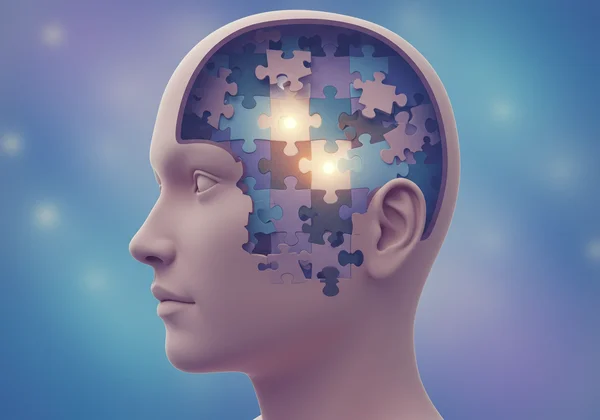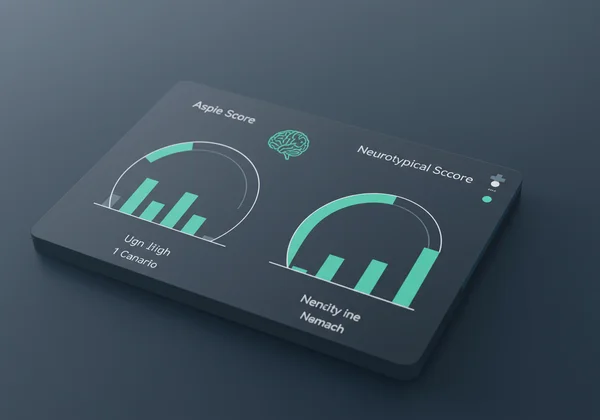Aspie Quiz for Adults & Women: Understanding Your Scores
August 10, 2025 | By Leo Sinclair
Have you ever felt like you're operating on a different wavelength from everyone else? For many adults, and especially women, this feeling of being 'different' can be a lifelong puzzle. Societal expectations often lead individuals to mask their true selves, making it difficult to pinpoint why social interactions feel draining or why certain topics ignite an all-consuming passion. The Aspie Quiz can be a powerful and illuminating first step on a journey of self-discovery. What do my Aspie quiz scores mean? This guide is here to help you navigate that very question.

We will explore how Autism Spectrum Disorder (ASD) traits can manifest in adults, why women are so often overlooked in diagnoses, and what your Aspie Quiz scores—particularly the Aspie and neurotypical scores—truly signify for your unique neurotype. This isn't about labels; it's about understanding. Ready to start? Begin your self-discovery journey on our homepage.
Aspie Quiz for Adults & Women: Why This Focus Matters
The conversation around autism has historically been dominated by research focused on young boys. This has created a narrow, stereotypical view that often excludes the experiences of adults and women. Taking an aspie quiz for adults or an aspie quiz for women requires a more nuanced understanding of how neurodivergent traits present later in life, often in subtle yet significant ways. This specific focus is crucial for providing a more accurate and compassionate lens for self-exploration.
Unmasking Autism: Different Presentations in Adult Women
One of the primary reasons women go undiagnosed is a phenomenon known as "masking" or "camouflaging." This is the often subconscious process of learning and mimicking neurotypical social behaviors to fit in. A woman might meticulously rehearse conversations, force eye contact despite it feeling uncomfortable, or suppress natural tendencies like stimming (repetitive movements).
This constant performance is mentally and emotionally exhausting. While it may help in navigating a neurotypical world, it hides the underlying autistic traits. These can include deep, analytical thinking, a strong sense of justice, intense empathy (contrary to stereotypes), and profound connections with a few chosen people or special interests. The Aspie Quiz is designed to look past the mask and question the underlying experiences.

Common Adult ASD Traits Beyond Stereotypes
As we move beyond outdated stereotypes, we recognize a broader spectrum of adult ASD traits. Many adults discover that their lifelong challenges with executive functions—like planning daily tasks, managing time, or shifting between activities—are linked to their neurotype. Sensory sensitivities are another common trait; you might be highly sensitive to bright lights, loud noises, strong smells, or certain textures in food or clothing.
Socially, the experience isn't about an inability to connect but a different approach to connection. Many autistic adults find small talk meaningless and draining, preferring deep, focused conversations on topics they are passionate about. They often experience "social hangovers," needing significant downtime to recover after socializing. Recognizing these patterns is the first step toward self-acceptance, and a tool like an online asperger's test can provide the framework for that recognition.
Decoding Your Aspie Quiz Score: Aspie vs. Neurotypical
Once you complete the Aspie Quiz, you'll receive a score report with two primary components: an Aspie score and a neurotypical (NT) score. It's vital to understand that these numbers are not a judgment. They are data points designed to provide insight, creating a snapshot of your cognitive and social profile. This is where the process of aspie quiz scores explained truly begins, helping you translate the numbers into meaningful self-knowledge.
What Does an "Aspie" Score Indicate?
Your Aspie score reflects the degree to which your responses align with traits common among neurodivergent or autistic individuals. A higher Aspie score suggests that you identify with many of the characteristics associated with the autism spectrum. These are not deficits; they are simply different ways of processing the world.
These traits might include:
- Systematic Thinking: A natural ability to identify patterns and understand complex systems.
- Intense Focus: The capacity to delve deeply into special interests with incredible passion and detail.
- Unique Communication: A preference for direct, honest communication over social nuances.
- Sensory Perceptions: A heightened or muted experience of sensory input.
A high Aspie score can be a moment of validation, providing a name for experiences you've had your entire life.
Understanding Your "Neurotypical Score" on the Aspie Quiz
Your neurotypical score on the Aspie Quiz measures how much your responses align with traits commonly found in the non-autistic population. These traits often revolve around intuitive social understanding, a preference for broad social groups, and more flexible communication styles. A lower neurotypical score, especially when paired with a higher Aspie score, strengthens the indication of a neurodivergent profile.

It’s important to remember that everyone possesses a mix of traits. The goal isn't to have a zero neurotypical score. This score simply provides a point of contrast, helping to illustrate the unique balance of your personal neurotype. This dual-score system provides a much richer picture than a single number ever could.
Is There a "Normal" Score? Interpreting Your Individual Results
Many people wonder if there is a "normal" or "correct" score. The answer is a definitive no. Neurodiversity means that human brains and experiences vary widely, and there is no single right way to be. The purpose of the quiz is not to compare you to a standard but to help you understand your own unique operating system.
Your results are a personal map. For those seeking even more clarity, our platform offers an optional, AI-powered report. This goes beyond the numbers to provide a comprehensive analysis of your strengths, potential challenges, and personalized insights into how your traits might affect daily life. This can be an invaluable tool for interpreting your individual results on a deeper level. You can get deeper insights after completing your free quiz.
Beyond the Numbers: The Value of Self-Exploration
Your quiz scores are a starting point, not a final destination. Their true value lies in the self-exploration they inspire. Understanding your neurodivergent traits can reframe your entire life story from one of confusion to one of clarity and self-compassion. It allows you to stop asking, "What's wrong with me?" and start asking, "How can I work with my brain instead of against it?"
How the Aspie Quiz Supports Your Self-Discovery Journey
The self-discovery journey prompted by the Aspie Quiz is deeply personal and empowering. For many, it's the first time they are given a vocabulary to describe their inner world. It validates past struggles and highlights hidden strengths you may have never recognized as such.
This newfound understanding can improve your relationships, inform your career choices, and help you create environments that support your well-being. It connects you to a vast and welcoming online community of other neurodivergent individuals, ending the feeling of isolation. The quiz is more than a test; it's a key that can unlock a more authentic and fulfilling life.

When to Consider Professional Evaluation After Your Quiz
It's crucial to remember that while the Aspie Quiz is a powerful screening tool, it isn't a medical diagnosis. It is designed for self-exploration and to provide informational insights.
If your results resonate deeply with you, and you find that your traits are causing significant challenges in your daily life, you might consider seeking a professional evaluation. A formal diagnosis from a qualified psychologist or psychiatrist is necessary for accessing workplace or educational accommodations. You can use your quiz results as a starting point for discussion with a healthcare professional, helping to guide a productive conversation. If you are ready to take that first step, you can start your exploration on our website.

Your Next Steps Towards Deeper Self-Understanding
Your journey of self-discovery is deeply personal. As you learn more about how neurodivergent traits, especially in adults and women, manifest and interpret your Aspie Quiz scores, you're taking powerful steps. Remember, these results aren't a fixed label, but a valuable map guiding you towards greater self-acceptance and a richer life.
The Aspie Quiz is here to make that exploration simpler, offering a private, secure, and insightful way to understand your unique mind. Ready to uncover what your results reveal?
Take the Aspie Quiz today and begin your personal journey. Feel free to share your thoughts or questions in the comments below – we're here to support you!
Frequently Asked Questions About the Aspie Quiz for Adults
Is there an Aspie Quiz specifically for adults and women?
The Aspie Quiz online is designed to be inclusive and relevant for adults of all genders. The questions explore a wide range of traits, including those related to internal experiences and masking, making it a particularly insightful neurodivergent self test for women and adults who may not fit outdated stereotypes.
What does a "neurotypical score" on the Aspie Quiz truly mean?
This score measures your alignment with traits more common in the non-autistic population, such as intuitive social navigation. A lower score here, especially when paired with a higher Aspie score, can indicate a neurodivergent profile. It provides a helpful contrast for understanding your unique combination of traits.
How accurate is the Aspie Quiz for self-assessment?
The Aspie Quiz is a well-regarded, science-informed screening tool used for self-exploration. Its accuracy is enhanced by your honest and thoughtful self-reflection. While it provides highly valuable insights for personal understanding, it is not a substitute for a formal clinical assessment.
Is the Aspie Quiz a diagnostic tool for autism?
No. It is crucial to understand that the Aspie Quiz is an informational self-assessment tool, not a medical diagnosis. It can help you understand your traits and decide whether to seek a professional evaluation, but only a qualified clinician can provide a formal diagnosis.
What do my Aspie Quiz scores indicate about my neurodivergent traits?
Your scores create a profile that highlights the balance between your neurodivergent (Aspie) and neurotypical traits. This can offer a new, powerful perspective on your communication style, social preferences, sensory experiences, and thinking patterns. For a more detailed breakdown, you can explore our AI report after taking the initial quiz.